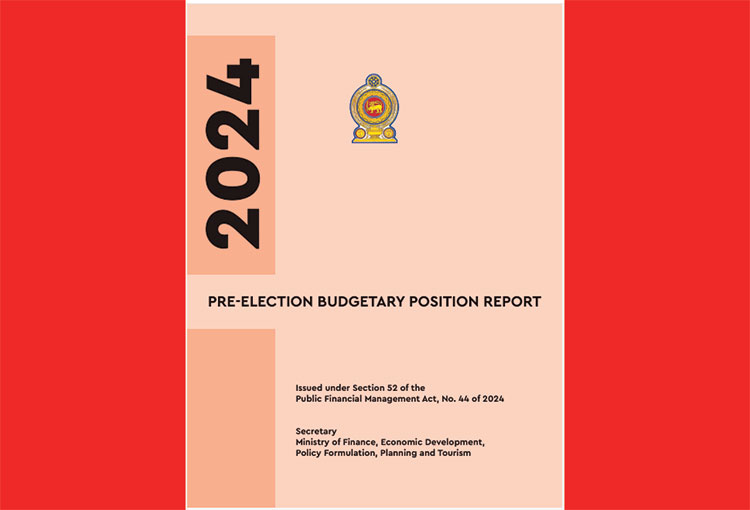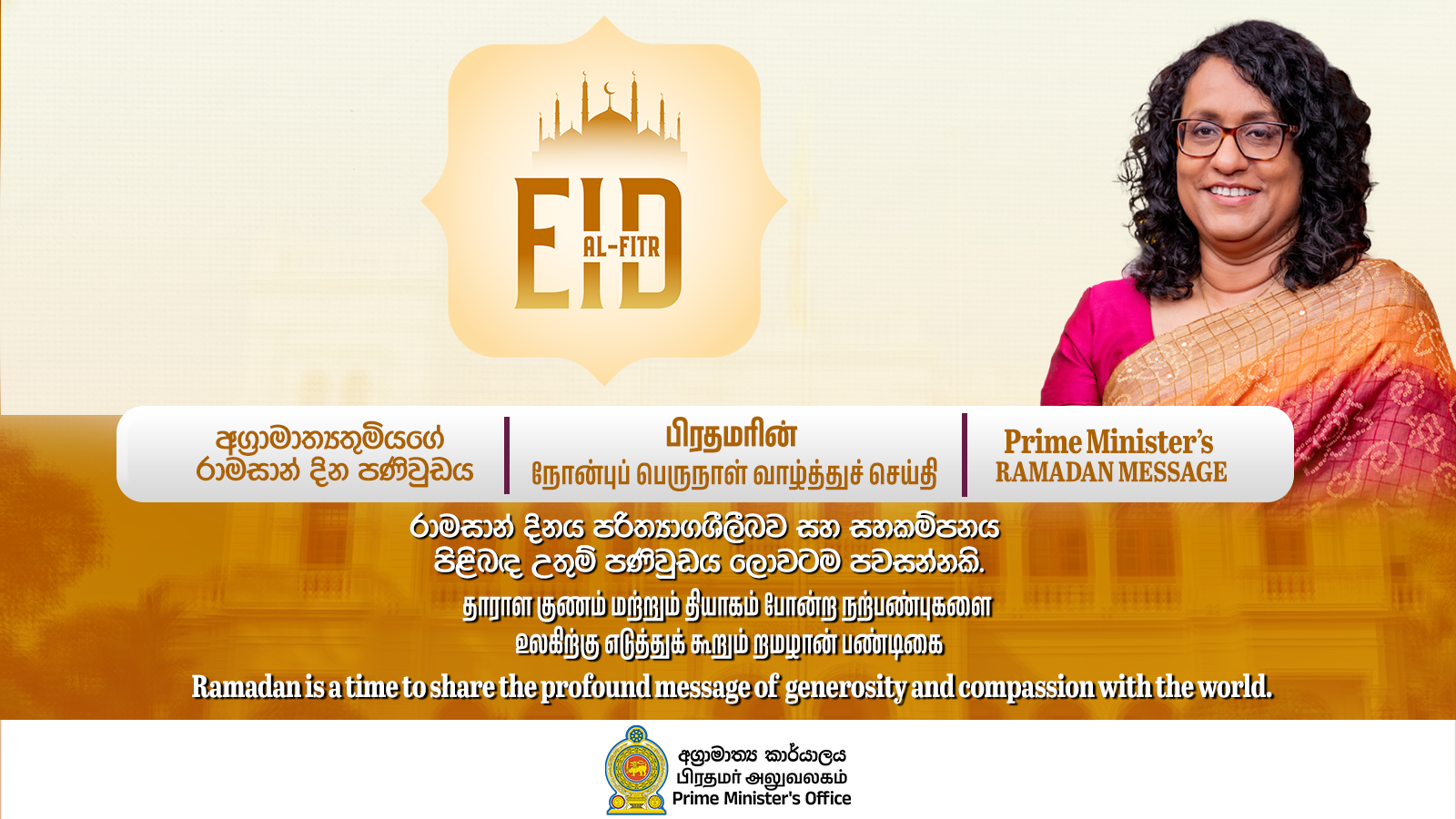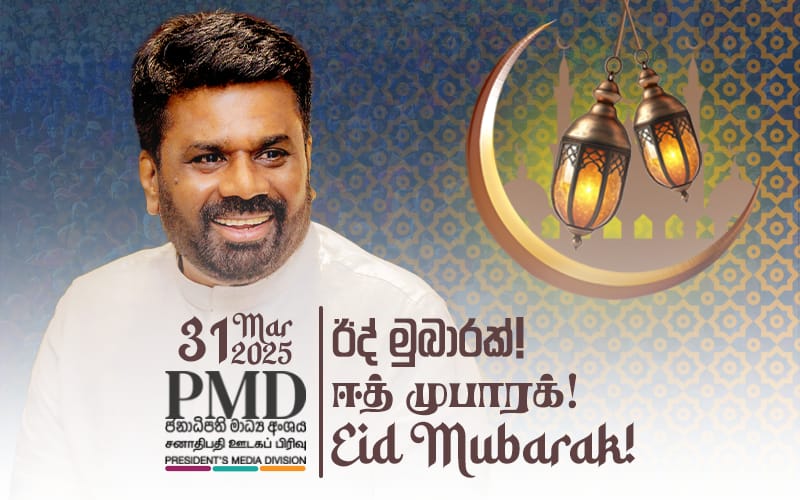News
SL govt. revenue rises by 40.5% in first eight months of 2024

Due to increased tax collection and import relaxation
Revenue from taxes on external trade increased by 29.0 percent to Rs. 302.5 billion in the first eight months of 2024 from the same period in 2023, emanating from increase in imports due to the gradual relaxation of import restrictions, Pre-Election Budgetary Position Report 2024 issued by the Ministry of Finance earlier this week said.
The increases in revenue collection from Special Commodity Levies (SCL) by 110.1 percent to Rs. 67.2 billion with the increase in SCL rates on essential commodities such as sugar and potatoes and the increase in revenue receipts from Customs Import Duty (CID) and CESS. Revenue collection from the Ports and Airports Development Levy (PAL) slightly increased by 3.4 percent despite the phasing out of PAL on selected items.
Revenue collected from income taxes increased by 16.3 percent to Rs. 624.7 billion in the first eight months of 2024, achieving 57.8 percent of the annual estimate of Rs. 1,080.0 billion. The increase in revenue from income tax was mainly due to the increase in revenue collection from Advance Personal Income Tax (APIT) and Withholding Tax (WHT) in the first eight months of 2024 from the same period of 2023. Revenue from taxes on goods and services increased by 59.8 percent to Rs. 1,421.3 billion in the first eight months of 2024. This was mainly due to the increase in revenue collected from Value Added Tax (VAT) by 87.2 percent to Rs. 842.5 billion, surpassing the total VAT revenue realized in 2023 by Rs. 148.0 billion stemming from the increase in VAT rates, reduction in the registration threshold, and removal of the vast majority of exemptions. This increase was also driven by increased revenue from the Excise Duty on petroleum products, Excise Duty on liquor, and Social Security Contribution Levy (SSCL).
The revenue from non-tax increased by 31.7 percent to Rs. 209.3 billion in the first eight months of 2024 from Rs. 158.8 billion in the same period of 2023. This has mainly been driven by the increase in revenue from fines, fees and charges, and interest income.
The total government expenditure increased slightly by 5.4 percent to Rs. 3,476.9 billion in the first eight months of 2024. Recurrent expenditure, which accounted for around 87.5 percent of total expenditure in the first eight months of 2024, slightly increased by 3.4 percent to Rs. 3,041.6 billion from Rs. 2,941.7 billion in the same period of 2023. This was mainly driven by the increase of salaries and wages by 6.7 percent to Rs. 659.5 billion in the first eight months of 2024 from Rs. 618.1 billion in the same period of 2023 due to an increase in cost-of-living allowance and the increase of interest payments by 2.2 percent to Rs. 1,559.7 billion in the first eight months of 2024 from Rs. 1,525.7 billion in the same period of 2023 owing to the increase in interest payment on domestic debt, foreign debt and domestic loans. Expenditure on subsidies and transfers increased slightly by 1.5 percent to Rs. 623.8 billion in the first eight months of 2023. Meanwhile, the capital and net lending significantly increased by 22.4 percent to Rs. 435.3 billion in the first eight months of 2024 from Rs. 355.6 billion in the same period of 2023.
Government Revenue including grants increased by 40.5 percent or Rs. 739.3 billion in the first eight months of 2024 from Rs. 1,826.6 billion in the same period of 2023 owing to the increase in tax revenue by 41.4 percent to Rs. 2,348.5 billion in the first eight months of 2024 from Rs. 1,661.2 billion in the same period of 2023. Revenue from taxes on goods and services, which account for 60.5 percent of total tax revenue, increased by 59.8 percent, or Rs. 531.9 billion, to Rs. 1,421.3 billion in the first eight months of 2024 from Rs. 889.5 billion in the same period of 2023. This increase was largely driven by the notable increase in revenue from Value Added Tax (VAT), which increased by 87.2 percent to Rs. 842.5 billion in the first eight months of 2024 from Rs. 450.0 billion in the same period of 2023. Thus, revenue collected from VAT in the first eight months of 2024 outperformed and surpassed Rs. 694.5 billion of revenue collected from VAT for the entire year of 2023. However, positive momentum in revenue generation must be sustained and enhanced over the medium term with a focus on tax compliance, eliminating tax leakages, digitalization, and minimizing corruption vulnerabilities through strengthened tax administration.
Expenditure on salaries and wages for public servants in the first eight months of 2024 including the salaries of employees attached to security forces, police, and Provincial Councils increased by 6.7 percent to Rs. 659.5 billion in 2024 from Rs. 618.1 billion in the same period of 2023. The increase in salaries was mainly attributable to the rise in the cost-of-living allowance by Rs. 5,000 per month effective from January 2024, and the increase of the same allowance by another Rs. 5,000 per month effective from April 2024, as per Public Administration Circular No. 03/2024 and Management Services Circular No. 01/2024. Total pension payments increased by 9.7 percent to Rs. 254.0 billion in the first eight months of 2024 from Rs. 231.6 billion in the same period of 2023.
Interest Payments
Expenditure on interest payments on foreign and domestic debt amounted to Rs. 1,559.7 billion in the first eight months of 2024, which marks an increase of 2.2 percent compared to Rs. 1,525.7 billion recorded in the same period of 2023. Interest payments for foreign debt increased by 34.9 percent to Rs. 100.0 billion in the first eight months of 2024 from Rs. 74.1 billion recorded in the same period of 2023 partly due to the commencing of repayment of some bilateral loans. Moreover, the interest payments on domestic loans slightly increased by 0.6 percent to Rs. 1,459.7 billion in the first eight months of 2024 from Rs. 1,451.6 billion in the same period of 2023.
Welfare and Subsidy Payments
The estimates of Rs. 1,055.7 billion for 2024 have been earmarked for the welfare programmes of social welfare, social security, education, health and nutrition and development assistance which is 15.4 percent of the government’s primary expenditure and 3.5 percent of the GDP. The estimate of Rs. 1,055.7 billion for 2024 represents a 15.3 percent increase compared to the actual expenditure of 2023 amounting to Rs. 915.4 billion. In the first eight months of 2024, the government’s welfare expenditure amounted to Rs. 562.4 billion including Rs. 112.7 billion for the “Aswesuma” programme, Rs. 9.5 billion for school nutrition food programme, Rs. 4.1 billion for the “Poshana Malla” programme, Rs. 4.4 billion for school textbooks and uniforms and Rs. 24.2 billion for fertilizer subsidy. Total welfare expenditure in the first eight months of 2024 increased by 3.3 percent to Rs. 562.4 billion from Rs. 544.3 billion in the same period of 2023. The increase was mainly driven by the increase of 83.9 percent of expenditure on health and nutrition, and the increase in development assistance by growth of 12.4 percent.
News
Ramadan is a time to share the profound message of generosity, and compassion with the World – PM

Prime Minister Dr Harini Amarsuriya in her Ramadan message says that Ramadan is a time to share the profound message of generosity, and compassion with the World.
The full text of the Prime Ministers Ramadan Message:
“As our Islamic brothers and sisters in Sri Lanka and around the world celebrate the sacred month of Ramadan, I extend my heartfelt greetings and best wishes for peace, prosperity, and spiritual fulfillment.
Ramadan is a time of deep reflection, prayer, and self-discipline. It is a period that teaches us the values of compassion, generosity, and unity. Fasting during this holy month is not only an act of devotion but also a reminder of the struggles faced by those less fortunate. It is a time to cultivate patience, humility, and gratitude while strengthening our bonds with family, friends, and the community.
At its core, Ramadan embodies the spirit of kindness, forgiveness, and charity. The practice of Zakat and Sadaqah during this time highlights the importance of sharing with those in need and reinforcing the principle that true prosperity lies in giving and uplifting others. These values are universal and resonate deeply with all communities, fostering harmony and understanding among people of different faiths and backgrounds.
Sri Lanka is a nation rich in diversity, and it is through mutual respect and solidarity that we continue to strengthen our collective future. The spirit of Ramadan reminds us of the need for coexistence, tolerance, and the pursuit of justice and peace.
As the month of fasting culminates in the joyous celebration of Eid, let us carry forward the lessons of Ramadan—compassion, unity, and selflessness—into our daily lives. May this blessed month bring peace to our hearts, our homes, and our nation.
Ramadan Mubarak!”
News
First phase of the Urban Forest Project under the ‘Clean Sri Lanka’ programme launched

The first phase of the Urban Forest Project under the ‘Clean Sri Lanka’ programme was launched on Sunday (30) morning near the Kelaniya Bridge in Peliyagoda.
This initiative was implemented in collaboration with S-lon Lanka (Pvt) Ltd, a subsidiary of The Capital Maharaja Group, aligning with the “Tree Guardian” project. It also coincided with Zero Waste Day which fell on Sunday (30), further reinforcing its environmental significance.
Guided by the Presidential Secretariat, key government and private sector stakeholders, including the Road Development Authority, the Urban Development Authority and the Colombo Municipal Council, partnered in the launch.
As part of the initiative, trees were planted on state-owned land between the Nawaloka Roundabout and the New Kelani Bridge in Peliyagods, to transform the area into an attractive urban forest plantation.
A unique aspect of this project is the assignment of responsibility for the protection and maintenance of the planted trees to various community groups, such as school students, university students and Daham Pasal (Religious School) students. The students of Dharmawijaya Daham Pasala in Peliyagoda were entrusted with the care and preservation of the trees planted near the Kelaniya Bridge.
Additionally, a mobile application (App) has been introduced to continuously monitor and update the growth and condition of the trees, as well as track the progress of their respective caretakers.
Delivering the keynote address at the ceremony, Secretary to the President Dr. Nandika Sanath Kumanayake emphasized that this project is not merely a reforestation initiative but a social, environmental and ethical movement closely linked to the objectives of the Clean Sri Lanka Programme.
Highlighting the historical challenges faced by tree planting projects initiated by previous governments, he noted that many such initiatives have struggled to achieve long-term success. However, he expressed confidence that, due to its strong public participation, the Clean Sri Lanka Programme would ensure the Urban Forest Project evolves into a sustainable and enduring initiative.
Attending the event as a Guest of Honour, Minister of Power and Energy Kumara Jayakody emphasized that the concept of green cities has gained global attention, with increasing focus on urban forests. The Minister highlighted the importance of fostering a mindset shift among the public to achieve these environmental goals effectively. He stressed that assigning responsibility to the people in implementing this project is crucial for its success. Furthermore, he pointed out that greater attention is now being directed toward renewable energy sources as part of efforts to create a sustainable environmental system.
Minister of Urban Development, Housing, and Construction Anura Karunatilaka, who participated in the event, noted that while urbanization has made life more convenient, it has also resulted in significant losses. He explained that Sri Lanka is now experiencing the negative consequences of urbanization, including environmental pollution, water contamination, air pollution and rising global temperatures. In searching for solutions to these challenges, initiatives such as urban forest projects play a vital role.
Minister of Rural Development, Social Security and Community Empowerment Upali Pannilage, Operations Manager of The Capital Maharaja Group S.C. Weerasekara and Senior Additional Secretary to the President, Russell Appuhamy, addressed the gathering.
Latest News
May this Eid-ul-Fitr bring peace, reconciliation and the fulfillment of our shared hopes for a new era of renewal and prosperity – President

President Anura Kumara Dissanayake in his Eid-ul-Fitr message wished that, this Eid-ul-Fitr bring peace, reconciliation and the fulfillment of our shared hopes for a new era of renewal and prosperity.
The full text of the President’s message:
“Eid-ul-Fitr, celebrated by Muslims worldwide after a month of fasting and upon sighting the new moon, holds great significance in the Islamic religious calendar.
Fasting during Ramadan, one of the five pillars of Islam, embodies the values of sacrifice, self-discipline and simplicity by distancing oneself from worldly desires. This period serves as a reminder of the importance of generosity towards those suffering from hunger and as an opportunity for self-restraint and spiritual growth, which devout Muslims deeply cherish.
As Sri Lanka undergoes various social, economic and political transformations, the teachings of Islam provide an excellent example for building a society rooted in freedom, equality, solidarity and human dignity. I strongly believe that these values serve as guiding principles in our collective journey toward a just and harmonious nation.
Furthermore, as we strive to foster a responsible and ethical political culture, one that values accountability over corruption and the misuse of public resources, the principles of self-restraint and sacrifice emphasized during Ramadan offer an inspiring model. They remind us of the need to cultivate a governance system that is sensitive to the aspirations and well-being of its people.
Eid-ul-Fitr is a celebration that transcends religious boundaries, promoting unity, compassion and selflessness. On this auspicious occasion, I extend my heartfelt wishes to all Sri Lankan and global Muslim communities.
May this Eid-ul-Fitr bring peace, reconciliation and the fulfillment of our shared hopes for a new era of renewal and prosperity.
Eid Mubarak!”
-

 Sports2 days ago
Sports2 days agoSri Lanka’s eternal search for the elusive all-rounder
-

 Features6 days ago
Features6 days agoCelebrating 25 Years of Excellence: The Silver Jubilee of SLIIT – PART I
-

 Business4 days ago
Business4 days agoAIA Higher Education Scholarships Programme celebrating 30-year journey
-

 Business6 days ago
Business6 days agoCEB calls for proposals to develop two 50MW wind farm facilities in Mullikulam
-

 News3 days ago
News3 days agoGnanasara Thera urged to reveal masterminds behind Easter Sunday terror attacks
-

 Features6 days ago
Features6 days agoNotes from AKD’s Textbook
-

 News2 days ago
News2 days agoComBank crowned Global Finance Best SME Bank in Sri Lanka for 3rd successive year
-

 Features2 days ago
Features2 days agoSanctions by The Unpunished











